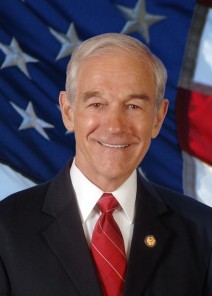This is part 2 of a 5-part article.
Read Part I Here
Read Part III Here
Read Part IV Here
Read Part V Here
Republicans: The Party of Nixon vs. The Party of Reagan
Both Nixon and Reagan were Republicans, but symbolically they are nearly polar opposites to all but the most staunch Republican loyalists.
Reaganites value strong national security and schools, fiscal responsibility, and laws which incentivize small businesses and entrepreneurial enterprises.
Nixonians value party loyalty over ideology, government policy that benefits big business and large corporations, international interventionism and winning elections.
A third faction in the Republican community are the populists.
Feeling disenfranchised by the loss of the Party to the Nixonians, the populists want Americans to “wake up,” realize that “everything is going socialist,” and “take back our nation.”
Identified with and defined by talk-show figureheads with shrill voices, the populists are seen as more against than for anything. They believe that government is simply too big, and that anything which shrinks or stalls government is patently good.
A Bad Day To Be A Populist
The populists are doomed to perpetual disappointment, since any time they win an election they watch their candidate “sell out.”
It is hard to imagine a more thankless job than that of the candidate elected by populist vote; once she takes office she is consigned to offend and alienate either her constituents or her colleagues — most likely both.
She is either completely ineffective at achieving the goals of her constituency, or, if she learns to function within the machine, she has no constituency left.
Any candidate who tries to work within the system will lose her appeal to the populists.
 If such a candidate stays focused on principle, like the iconic Ron Paul, many populists will admire his purity but will criticize his lack of substantive impact — his accomplishments are seen as almost exclusively symbolic.
If such a candidate stays focused on principle, like the iconic Ron Paul, many populists will admire his purity but will criticize his lack of substantive impact — his accomplishments are seen as almost exclusively symbolic.
Some of the most influential populist pundits (like Rush Limbaugh) have lost “believers” by being outspokenly populist when it supports the party agenda (like during the Clinton Administration and later in rejecting McCain’s presidential candidacy as too moderate/liberal) and then switching to support the Party (backing President Bush even in liberal policies and supporting McCain when he became the Republican nominee).
This is seen by detractors as manipulative, corrupt and Nixonian at worst, and self-serving, hypocritical and opportunist at best.
Vast Right Wing Conspiracy
Populism is considered “crazy” by most intellectuals in the media and elsewhere.
This is probably inevitable and unchangeable given that the same things which appeal popularly (such as alarmism, extremism, labeling, using symbols, images, hyperbole and appeals to sentimentalism) are considered anti-truth to intellectuals.
Indeed, part of training the intellect in the Western tradition is to reject the message of such deliveries without serious consideration, and dismiss the messenger as either unfit or unworthy to have a serious debate on issues.
Wise intellectuals look past the delivery and consider the actual message. This being said, even when weighed on its own merit the populist message is unpopular with intellectuals.
Populism is based on the assumption that the gut feelings of the masses (The Wisdom of the Crowds) are a better source of wisdom than the considered charts, graphs and analysis by teams of experts.
This hits very close to home for those who make their living in academia, the media or government. So our system seems naturally to pit the will of the people against the wisdom of the few.






Speak Your Mind
You must be logged in to post a comment.